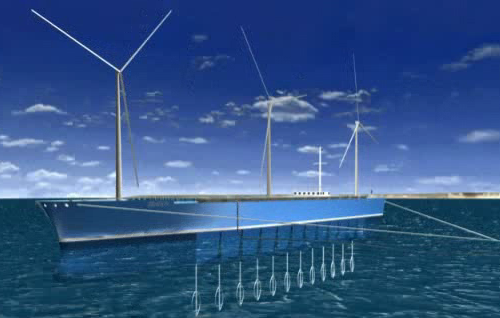Abu Dhabi Future Energy Co, known as Masdar, is seeking to form international ventures to build water-desalination plants powered by renewables across the globe as early as 2018, a company official said.
Potential partners include Suez, Veolia Environnement SA, Abengoa SA and Trevi Finanziaria Industriale SpA, Mohammad El Ramahi, Masdar’s director of asset management and technical services, said in an interview in Abu Dhabi. Suez, Veolia and Trevi had no immediate response to emailed requests for comment on Masdar’s plans, while Abengoa declined to comment.
Masdar, which the oil-rich emirate set up to realise its ambition of becoming an international hub for clean energy, plans to team up with companies specialising in using solar power to make seawater fit to drink, El Ramahi said. The four companies have each built a pilot project for solar-powered desalination in Abu Dhabi, and a fifth plant is under construction, he said. Each pilot facility uses a different technology.
“The main objective is to commercialise these technologies,” El Ramahi said. “In this light, Masdar has entered into commercial agreements with its partners.”
Global rarity
Most desalination plants that run on renewable energy worldwide are for research and development purposes, according to a report from Boston-based advisory firm Bluefield Research. Global capacity for renewable desalination is 1.7 million cubic metres per day, it said. This represents a fraction of more than 86.8 million cubic metres per day in output from conventional desalination plants as of mid-2015, according to the International Desalination Association’s website.
Plants using renewables are likely to be 20 per cent to 25 per cent less expensive than conventional facilities, El Ramahi said. “The cost of energy represents 60 per cent to 70 per cent of the cost of water desalination,” he said. “If you dramatically reduce the energy intensity, you dramatically reduce cost.”
The six member states of the Gulf Cooperation Council, including the United Arab Emirates, are home to 57 per cent of the world’s desalination capacity, the Oxford Business Group said on its website. The UAE alone has about 70 plants processing 14 per cent of the world’s desalinated water, it said.
“Renewable desalination is not something that has been tried on a large scale,” said Arslan Khalid, an analyst at the Abu Dhabi-based International Renewable Energy Agency, known as Irena. “There are not many commercial examples. That’s why there is a very strong need for more work — not only prototyping but also doing projects and getting experience in it.”
Source: Gulf News












